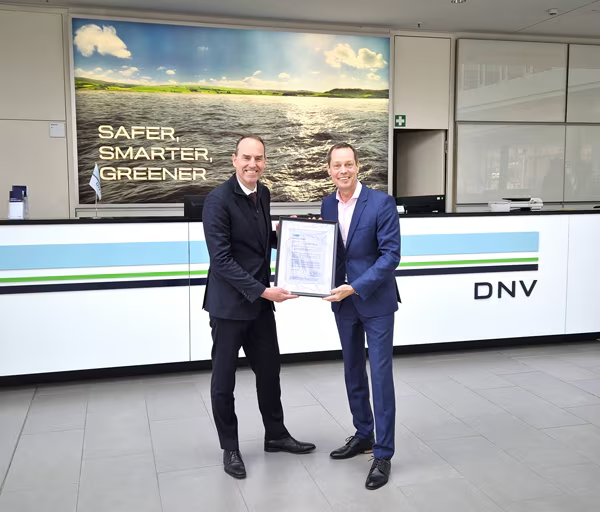The maritime sector’s search for scalable, zero-emission propulsion systems took a step forward with Yanmar Power Technology’s (Yanmar PT) hydrogen fuel cell system receiving Approval in Principle (AiP) from classification society DNV.
The GH320FC system—designed for modularity, flexibility, and maritime compliance—represents Yanmar’s latest move to commercialize hydrogen technologies for coastal and inland shipping.
The AiP acknowledges that the GH320FC’s design meets the preliminary safety and engineering standards required for maritime integration. While not a final certification for operation, AiP is a critical step toward deployment, particularly in regulatory environments such as the European Union, where emissions limits in ports and inland waterways are tightening under the FuelEU Maritime regulation and national clean air policies.
Yanmar’s GH320FC is engineered to accommodate a variety of vessel types. Its modular architecture supports parallel operation of multiple fuel cell units, allowing shipbuilders to tailor onboard systems based on vessel size and power requirements. This is especially relevant for use cases with fluctuating load demands—such as inland cargo transport or port service operations—where system adaptability is a prerequisite for commercial viability.
The system’s target applications include coastal passenger ferries, port service vessels, and inland cargo ships—segments where electrification has so far struggled to meet the energy density and operational flexibility required. According to Eric Tigelaar, Department Manager of Commercial Marine at Yanmar Europe, the GH320FC has been designed specifically for vessels operating in or near zero-emission zones. He cited the system’s suitability for European waterways and nearshore corridors, where stricter emissions targets are accelerating the transition to alternative fuels.
From a systems engineering perspective, the GH320FC’s design emphasizes ease of installation and maintainability—two factors that remain barriers to adoption in retrofitting scenarios. By focusing on unit modularity and scalable configurations, Yanmar is attempting to reduce integration costs, often cited by operators as a limiting factor in transitioning to hydrogen-based propulsion.
This isn’t Yanmar’s first hydrogen deployment. The company has already fielded a hydrogen fuel cell system in commercial service aboard a coastal passenger ferry in Japan, offering a limited but valuable validation case for reliability and operational readiness. Drawing on these insights, Masaru Hirose, General Manager of Large Power Products Business at Yanmar PT, highlighted the company’s intent to leverage Japanese deployment experience to accelerate uptake in the European market.
For classification society DNV, the AiP reflects broader efforts to enable safe and certifiable adoption of hydrogen fuel technologies.
Stay updated on the latest in energy! Follow us on LinkedIn, Facebook, and X for real-time news and insights. Don’t miss out on exclusive interviews and webinars—subscribe to our YouTube channel today! Join our community and be part of the conversation shaping the future of energy.





